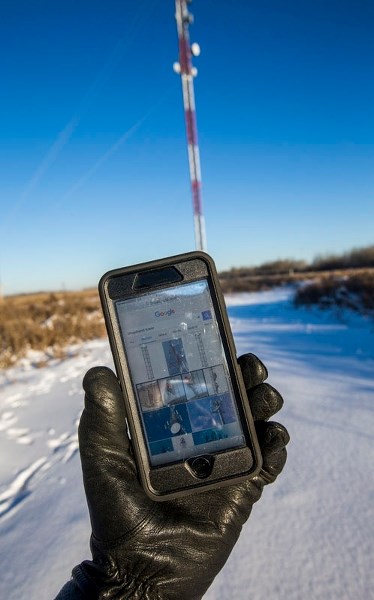The federal government's call for universal broadband could make Sturgeon County businesses more competitive, says a county councillor.
The Canadian Radio-television and Telecommunications Commission ruled Dec. 21 that all Canadians, rural and urban, should have access to broadband Internet, making it an essential service akin to a landline telephone. Previously, it had said that only landlines were essential.
Rural communities have long struggled to get broadband Internet at all, let alone decent connection speeds.
The CRTC has ordered all service providers to provide download speeds of at least 50 megabytes per second (Mbps) and uploads of at least 10 to all Canadians – a 10-fold increase from the current minimums.
About 18 per cent of Canadians don't have access to these speeds, the CRTC reports. The commission wants to get that down to 10 per cent by 2021 and to zero within 10 to 15 years. It also plans to set up a $750 million fund that providers will both contribute to and access in order to build the infrastructure needed for these speeds.
"These goals are ambitious," CRTC chair Jean-Pierre Blais said in a press conference.
"They will not be easy to achieve and they will cost money. But we have no choice. The future of our economy, our prosperity and our society – indeed the future of every citizen – requires us to set ambitious goals, and to get on with connecting all Canadians for the 21st century."
Dial-up stinks, says county
About 83 per cent of rural Albertans now get broadband Internet, said Allan Bly of Edmonton's Vitel Consulting, who studied rural broadband at the request of the Alberta Urban Municipalities Association in 2011. The problem is speed: whereas urban residents can easily get 25 Mbps, rural ones are stuck with 1 or 3.
Slow speeds can mean big money for farmers, said Wayne Bokenfohr, Sturgeon County council's representative with the Federation of Canadian Municipalities (FCM). If you click the "sell" button to sell your oats at a certain price and you're on dial-up, the price could easily drop by the time your order is received.
"(The farmer) has got a lesser price simply because of the Internet service."
Nancy Suranyi of Namao Automotive & RV Repair said her workers have to physically walk certain documents over to their front desk now because it's faster than waiting for them to come through on the Internet. They'd get a better connection, but higher speeds physically aren't available in Namao.
"It's hindering us as a business," she said, as it makes them less efficient.
Faster basic broadband for everyone will make Sturgeon County more competitive and attractive to business, Bokenfohr said. The county could also potentially tap into the CRTC's new broadband fund, as well as a similar $500 million one announced by the federal government earlier this month.
But many companies aren't providing broadband in rural areas at all, let alone high-speed access, because it's not profitable, Bly said. Providing these higher speeds will require expensive upgrades.
"We can't be raising the cost to the rural resident," he said, as many are seniors on fixed incomes. He suspected that municipalities might have to subsidize the cost of faster broadband to keep it affordable.
Rural governments will have to take a leading role to improve broadband coverage, Bly said. Saddle Hills and Parkland County are two of the many jurisdictions he's working with that have started building their own towers in order to attract broadband providers.
The FCM has been calling on the federal government to take this step for a long time, Bokenfohr said.
"The newest combines require software for the mechanics to even look at them," he said, and a friend of his has a Wi-Fi pacemaker doctors can use to diagnose his heart.
"The technology is there. Are we going to have the tools to use it?"




